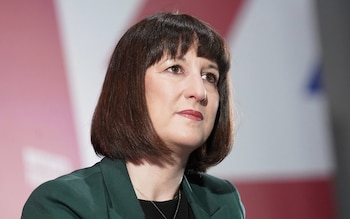Daniel Kretinsky was adamant he would not mount a bid to take Royal Mail off the stock market.
“For multiple reasons – the heritage, the spirit of the company – it’s good if every British citizen can invest in the shares,” he said in an interview last year.
It was a rare venture into the public realm for the billionaire, whose penchant for secrecy has earned him the nickname the “Czech sphinx”.
Yet less than 12 months later, he has already broken his word. On April 17 it emerged Kretinsky had tabled a bid to take Royal Mail’s parent company private by buying up the remaining shares he does not already own.
Board members rejected the bid, which valued the business at £3.1bn not including debt, saying it “significantly undervalues” the company. Yet the postal service remains in a vulnerable spot as the tycoon eyes up his next move.
Royal Mail is locked in an all-consuming campaign to overhaul what it claims are outdated postal regulations and adapt to the modern age, all the while continuing to rack up heavy losses.
Troubles have dragged down Royal Mail’s share price in recent years and the company’s market value stood at just £2.1bn ahead of the announcement, a decline of more than 40pc since its float in 2013.
Kretinsky – a veteran dealmaker – sensed blood in the water. While his first offer was rebuffed, few expect him to simply walk away.
“I suspect he will raise and has made a public statement to get shareholders to pressure the board into recommending or accepting an offer,” says Alexander Paterson, an analyst at Peel Hunt.
For Royal Mail, the approach could not come at a more awkward time. The postal service is in the throes of a controversial campaign to overhaul its so-called universal service obligation (USO), which requires it to deliver letters six days a week.
Bosses have warned that current regulations, which have not been updated since 2003, are anachronistic as letter volumes tumble. Royal Mail predicts letter deliveries could drop to just four billion in the next five years, down from a peak of 20 billion two decades ago.
Costs have not fallen alongside the lower volumes. Royal Mail has blamed the restrictive framework for its hefty losses of £319m in the first half of the year, as well as for a slump in service quality that sparked a record £5.6m fine from Ofcom.
Earlier this month, Royal Mail put forward proposals to deliver second class letters three times a week, while maintaining a six-day service for first class service. It also wants to water down quality of service targets.
The company has said the changes could save it £300m a year. Ofcom is now reviewing the plans, though any reform could ultimately come down to a vote by MPs and political opposition is already rife.
Issues have been compounded by lengthy strikes by postal workers that cost the company £1m per day at their peak.
Martin Seidenberg, chief executive of parent company International Distributions Services (IDS), is refocusing Royal Mail on parcel deliveries and has outlined new measures to boost productivity.
Earlier in April he appointed Emma Gilthorpe, a former Heathrow executive, as the new chief executive of Royal Mail. She is the company’s fourth boss in five years, and will be tasked with restoring order to the troubled postal service.
Yet Kretinsky’s surprise bid threatens to derail Gilthope’s plans before she has even taken up her post.
In a statement on April 17, Kretinsky’s EP Group, which is already IDS’s largest shareholder with a 27.5pc stake, took aim at the company’s woes.
It said: “Weak financial performance, poor service delivery and a slow transformation, in the face of a market going through structural change, have put the business under unsustainable pressure.
“With the increasing competition from multinational companies in the UK postal market, private investment in Royal Mail becomes crucial.”
Kretinsky is no stranger to the postal market. Through EP Group he holds a stake of around 30pc in PostNL, which delivers parcels and letters across Belgium, the Netherlands and Luxembourg. The company is locked in a similar debate with the Dutch government about reducing its commitment to letter deliveries.
Analysts suggest Kretinsky could carve out the parcels arm of IDS, which also includes Netherlands-based courier service GLS, and merge this with PostNL.
Paterson says the tycoon “may well be able to extract some synergies from procurement” through a merger, adding that GLS could attract interest from other bidders.
“GLS has generally performed well, and has a significant long-term growth opportunity. Royal Mail has not,” he adds.
The billionaire may also be encouraged by potential reforms to the USO, which could pave the way for Royal Mail to become profitable in the coming years.
EP Group has offered little details about its plans for the company. Under UK takeover rules it now has until 5pm on May 15 to say if it wants to make a firm bid.
Despite his low profile, Kretinsky has been gradually increasing his presence in Britain through investments including Sainsbury’s and West Ham Football Club. But any swoop for Royal Mail, which traces its roots back to 1516, would be his biggest move in the UK to date.
It would also likely attract political scrutiny under tough new national security laws as ministers take an increasingly sceptical view towards handing critical national assets over to foreign buyers. EP Group itself acknowledged that Royal Mail is an “important national asset”.
Opposition could also come from Royal Mail’s highly-unionised workforce, which has long caused a headache for postal bosses. Employees hold a collective stake in the company of around 5pc through its share incentive plan.
In a statement on April 17, Dave Ward, general secretary of the Communication Workers Union (CWU), said handing over Royal Mail to a foreign investor “cannot be right”, but said something had to change.
EP Group said it “recognises the importance of the Royal Mail business to its various stakeholders, including employees, trade unions, customers and Government”.
Where many have seen only trouble in Royal Mail, the Czech sphinx has spotted an opportunity.
Disclaimer: The copyright of this article belongs to the original author. Reposting this article is solely for the purpose of information dissemination and does not constitute any investment advice. If there is any infringement, please contact us immediately. We will make corrections or deletions as necessary. Thank you.



